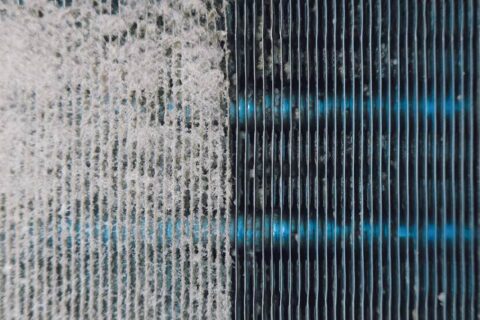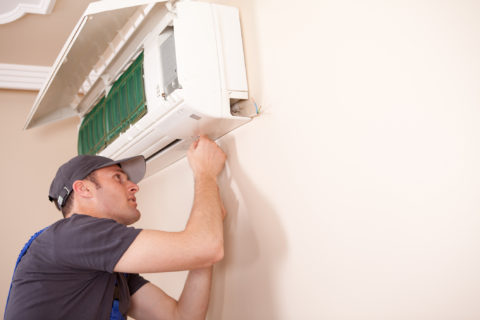How To Improve Indoor Air Quality
The air quality of your home is not only important for the pleasantry of smelling fresh, clean scents. Air quality also impacts your breathing. Air can hold dust, chemicals, and pollutants that can be harmful for both you and your environment.
According to the EPA, indoor air quality is 2-5 times worse than outdoor air quality. That is a rather alarming statistic! For people with allergies, low air quality can make it difficult and even painful to breathe. Proper ventilation and minimal chemicals benefit the environment as well as your ability to breathe and feel comfort.
How can you make sure to have sustainably healthy air quality?
With more and more people working from home now, the quality of air is significantly impacting your overall health. Allergy and asthma attacks can be caused by cleaning chemicals, dust, smoke, pet dander. These can lead to more serious health issues, including infections.
Particle pollution, or particulate matter, float around in the air, like household dust, pet hair can be seen but there are also microscopic particles, like viruses, mold spores, pollen and bacteria can be present, too. These can impact health.
Cleaning with damp cloths, using ventilation fans when cooking and in bathrooms can reduce the presence of these. Additionally, using high quality air filters and air cleaners can make the air you breathe safer and healthier.
Tips for Purifying Your Air
Improve your life with improved air quality by following these tips:
- Change air filters regularly
Air filters in your air conditioner are the first line of defense as air enters your home. When these become clogged and filled with debris, their efficiency is compromised and decreases your air quality. Set reminders so that you will remember to replace every three months. - Ventilation
Open doors and windows during warm weather to allow improved air flow for FREE! Bringing in clean air, even for just a part of the day, will remove unsafe air particles. Be mindful of pollen season and avoid high pollen times of day! - Indoor plants as natural filters
Plants bring natural beauty and calm into a space, but they also provide natural air filtration. Plants breathe in carbon dioxide and breathe out clean oxygen, which improves your air quality instantly! Plants with large, leafy surface area have the most impact on air quality. Consider plants such as, Boston ferns, Golden pothos, palm trees, English ivy, and aloe vera. The addition of plants partnered with regularly replaced air filters will have a significant impact on your home’s air quality. - Add Insulation and Seal Windows and Doors
Adding insulation to walls, garage and attic can reduce heat flow and protect your desired temperature. This reduces the work required by the HVAC unit.
Increase air efficiency by preventing leaks through doors and windows but also seal cracks in walls and foundation. Sealing all cracks will block unwanted pollutants like exhaust, pollen, or factory pollutants, out of the air that you’re breathing inside of your home.
Both insulating and sealing your home increase the energy efficiency and also lower monthly expenses. It’s a win-win!
- Keep Clean!
Clean spaces provide peace and relaxation. It also improves air quality. Vacuuming removes dust mites and pet dander. Dust surfaces and wash sheets and blankets to reduce the amount of dust settling on these spaces. Taking your shoes off can also reduce exposure to dust, mold, and pollen that enters your home. - Natural Cleaning Methods
You can keep your home clean without using harmful chemicals. Use natural cleaners, such as white vinegar, baking soda, salt, borax, liquid castile soap and essential oils. - Check Radon Levels
Dangerous gases, such as radon, can be colorless and odorless. Radon comes from natural process of decaying materials in soil. While these gasses are natural, they can increase the risk of lung cancer. Testing your home with a test kit or by hiring professional. It is also important to know that there is a way to provide underground ventilation systems.
Air Filters, Air Ducts and Air Vents
Maintaining your HVAC unit will directly impact air quality. Routinely change air filters to decrease pollutants circulating through air vents. Clean air ducts so that they can prevent the spreading of pollutants and, also, bad smells. Clean air vents to reduce dirt, dander, and other pollutants from spreading throughout your home.
Air Quality Solutions from Budget Waterproofing
Budget Waterproofing can help to improve your home’s air quality by installing an
E∙Breathe System® to prevent:
- Odors
- Asthma
- Moisture
- Allergies
- Mildew
- Wood rotting
- Bacteria
We have proudly served Maryland area residents for over 30 years. Let us help you improve the indoor air quality of your home. Check our service areas and contact us today! Let’s get started on your home’s improved air quality today!


